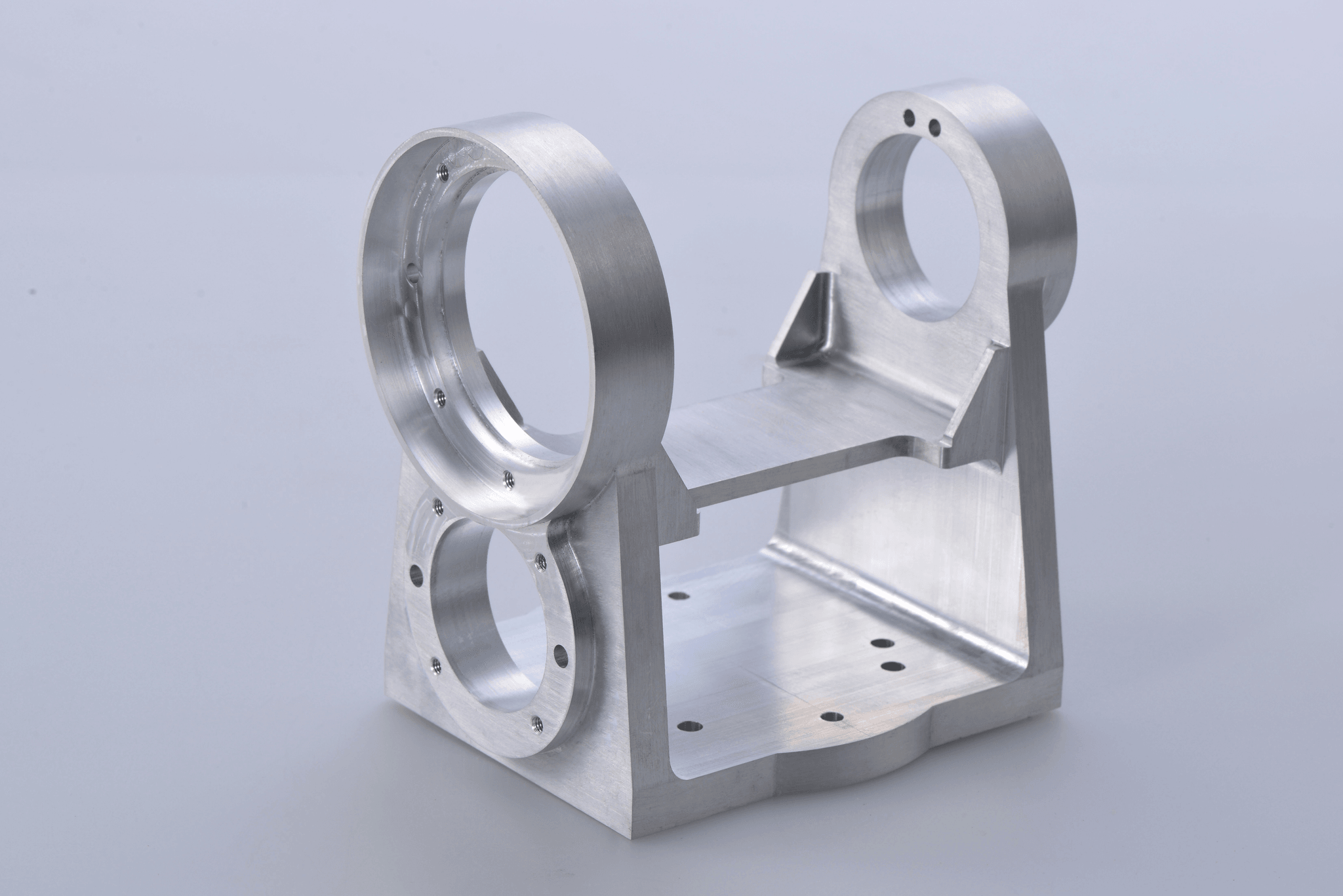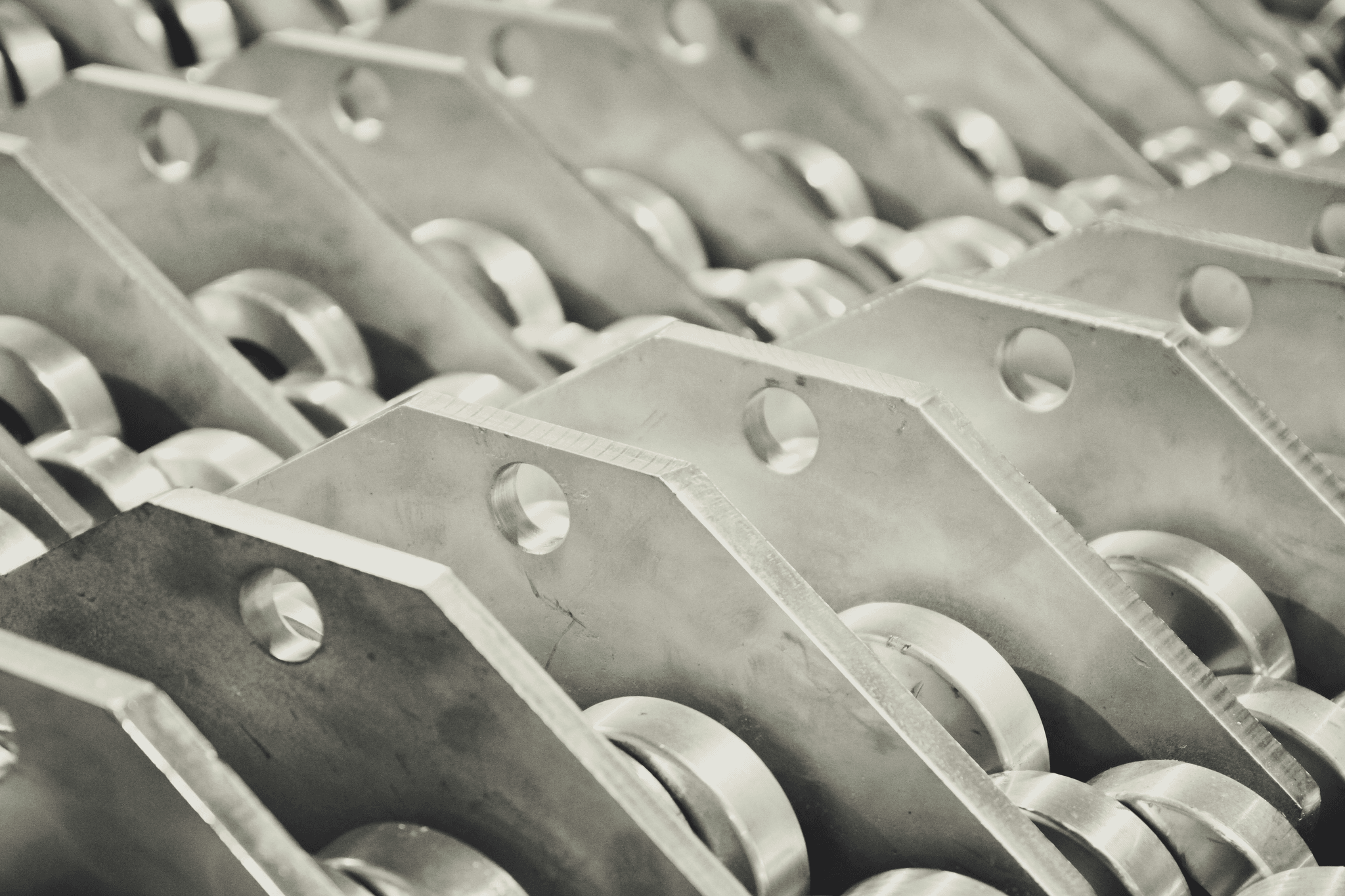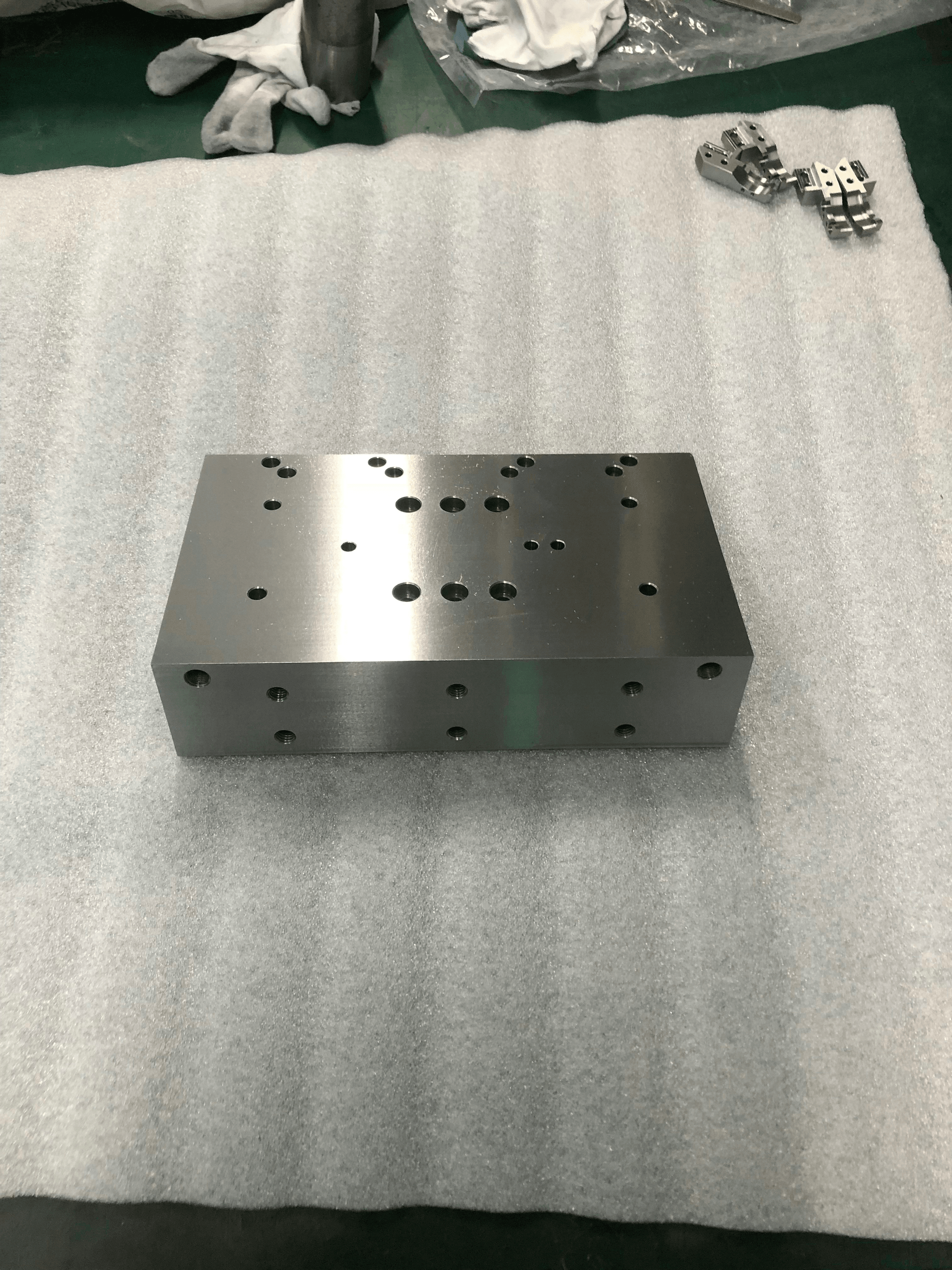Introduction

When it comes to manufacturing high-quality metal parts, die cast aluminum alloys are a popular choice due to their superior properties and performance. Understanding the basics of die cast aluminum alloys is crucial for making informed decisions about which alloy is best suited for your specific project needs. With a wide range of aluminum alloys available for die casting, it's important to explore the options and determine which one will deliver the best results for your application.
Understanding the Basics of Die Cast Aluminum Alloys
Die cast aluminum alloys are metal alloys made using the die casting process, which involves injecting molten metal into a steel mold under high pressure. This results in parts with excellent dimensional accuracy and smooth surface finishes. The composition and properties of die cast aluminum alloys make them ideal for a variety of applications across different industries.
Exploring the Best Aluminum Alloys for Die Casting
Choosing the best aluminum alloy for die casting depends on factors such as strength, corrosion resistance, machinability, and thermal conductivity. Some popular choices include 380, 383, and 413 aluminum alloys, each offering unique advantages for specific applications. It's essential to explore these options to determine which alloy will meet your project requirements.
Making Informed Decisions About Die Cast Aluminum Alloys
Making informed decisions about die cast aluminum alloys involves considering various factors such as mechanical properties, surface finish requirements, and cost-effectiveness. By understanding the characteristics of different aluminum alloys and their compatibility with the die casting process, you can ensure that you select the most suitable alloy for your project needs.
Ningbo Buttler Precision Machinery Co., Ltd., an industry leader in die-casting molds and processing, offers innovative tooling designs engineered for cost-effective manufacturing to maximize performance and casting quality while minimizing secondary operations!
What is Die Cast Aluminum Alloy?

Definition and Composition of Die Cast Aluminum Alloys
Die cast aluminum alloys are metal materials that are formed by injecting molten aluminum into a mold under high pressure. These alloys typically consist of aluminum, along with small amounts of other elements such as copper, zinc, and magnesium to enhance their properties.
Properties and Characteristics of Die Cast Aluminum Alloys
Die cast aluminum alloys offer excellent strength-to-weight ratio, high thermal conductivity, and good corrosion resistance. They also have good dimensional stability and can be easily machined, making them ideal for a wide range of applications in various industries.
Advantages of Using Die Cast Aluminum Alloys

The use of die cast aluminum alloys provides numerous advantages, including lightweight design options, high mechanical properties, and the ability to create complex shapes with tight tolerances. Additionally, die cast aluminum alloys have excellent electrical conductivity and can be easily recycled for sustainability.
Now that we've covered the basics of die cast aluminum alloys, let's delve into the specific question: Can 6061 Aluminum Be Die Cast?
Can 6061 Aluminum Be Die Cast?

Compatibility of 6061 Aluminum with Die Casting Process
When it comes to die casting, the compatibility of 6061 aluminum with the process is a crucial consideration. This popular aluminum alloy is known for its excellent machinability and weldability, making it a suitable candidate for die casting. Its high strength and good corrosion resistance also make it a favorable choice for various applications in different industries.
Considerations When Using 6061 Aluminum for Die Casting
Using 6061 aluminum for die casting requires careful considerations, such as the design of the part, the complexity of the mold, and the specific requirements of the project. It's important to assess factors like wall thickness, draft angles, and parting lines to ensure successful die casting with 6061 aluminum alloy. Understanding these considerations will help in optimizing the die casting process for this particular alloy.
When die casting with 6061 aluminum, it's crucial to consider the cooling rate of the alloy. This will help in preventing defects like shrinkage and porosity in the final part. Additionally, understanding the thermal conductivity of 6061 aluminum can aid in optimizing the cooling process during die casting, ensuring a high-quality end product. By carefully managing the cooling rate and thermal conductivity, manufacturers can achieve better results when using 6061 aluminum for die casting.
Best Practices for Die Casting 6061 Aluminum Alloy
To achieve optimal results when die casting with 6061 aluminum alloy, it's essential to follow best practices that are tailored to this specific material. This includes proper mold design, precise control of molten metal temperature and flow, and effective cooling strategies to minimize porosity and defects in the final cast parts. By adhering to these best practices, manufacturers can consistently produce high-quality components using 6061 aluminum alloy.
Ningbo Buttler Precision Machinery Co., Ltd., a leader in die-casting molds and aluminum castings, offers expertise in utilizing 6061 aluminum alloy for die casting applications. With their innovative tooling designs and cost-effective manufacturing processes, Buttler ensures maximum performance and quality while minimizing secondary operations for their clients' projects.
Is Die Cast Aluminum Better Than Aluminum?

When comparing die cast aluminum alloys to traditional aluminum, it's important to consider the specific properties and characteristics of each. Die cast aluminum alloys offer superior strength, durability, and corrosion resistance compared to traditional aluminum. Additionally, die cast aluminum alloys have a higher dimensional stability and better thermal conductivity, making them the preferred choice for many applications.
Comparing Die Cast Aluminum Alloys to Traditional Aluminum
Die cast aluminum alloys are known for their exceptional mechanical properties, including high strength-to-weight ratio and excellent stiffness. In contrast, traditional aluminum may not possess the same level of strength or durability, making it less suitable for demanding applications. Furthermore, die cast aluminum alloys can be engineered to meet specific performance requirements, offering greater flexibility in design and functionality.
In addition, die cast aluminum alloys offer superior corrosion resistance compared to traditional aluminum, making them ideal for outdoor or harsh environment applications. This increased resistance to corrosion ensures a longer lifespan for components and reduces the need for frequent maintenance or replacement. By choosing die cast aluminum alloys, you can benefit from cost savings and extended durability in your project.
Benefits of Choosing Die Cast Aluminum for Your Project
Choosing die cast aluminum for your project offers numerous benefits, including enhanced mechanical properties, improved dimensional accuracy, and excellent surface finish. Additionally, die cast aluminum alloys can be easily machined and finished to achieve precise tolerances and intricate designs. With superior casting quality and performance capabilities, die cast aluminum is the ideal choice for a wide range of industrial applications.
Applications of Die Cast Aluminum Alloys in Various Industries
Die cast aluminum alloys are widely used in various industries due to their exceptional properties and performance advantages. From automotive components and aerospace parts to consumer electronics and industrial machinery, die cast aluminum alloys play a critical role in delivering high-quality products with unmatched reliability and efficiency.
In the automotive industry, die cast aluminum alloys are commonly used for manufacturing engine components, transmission housings, and structural parts due to their lightweight yet durable nature. The high strength-to-weight ratio of die cast aluminum alloys allows for improved fuel efficiency and overall vehicle performance. Additionally, the corrosion resistance of these alloys ensures longevity and reliability in harsh operating environments, making them an ideal choice for automotive applications.
Aluminum Die Casting Alloy Composition & Properties
Understanding the Chemistry Behind Aluminum Die Casting Alloys

When it comes to die cast aluminum alloys, understanding the chemistry behind them is crucial. The composition of aluminum die casting alloys typically includes a combination of aluminum, silicon, copper, magnesium, and other elements. This unique blend of metals gives die cast aluminum alloys their desirable properties such as high strength, lightweight, and excellent corrosion resistance.
Key Properties and Performance Characteristics of Die Cast Aluminum Alloys
Die cast aluminum alloys offer a wide range of key properties and performance characteristics that make them ideal for various applications. These include high dimensional stability, good thermal conductivity, and excellent electrical conductivity. Additionally, die cast aluminum alloys have the ability to be easily machined and formed into complex shapes with tight tolerances.
Identifying the Ideal Alloy Composition for Your Die Casting Needs
Identifying the ideal alloy composition for your die casting needs involves considering factors such as mechanical properties, corrosion resistance, and thermal conductivity. Different applications may require specific alloy compositions to meet performance requirements. Partnering with Ningbo Buttler Precision Machinery Co., Ltd., experts in die-casting molds and processing, can help you navigate the complexities of choosing the right alloy composition for your specific project.
Aluminium Alloy Die Casting

Exploring the Process of Aluminum Alloy Die Casting
Aluminum alloy die casting is a manufacturing process that involves injecting molten aluminum into a steel mold to create complex shapes with high precision and accuracy. The process begins with melting the aluminum, then injecting it into the mold under high pressure, followed by cooling and solidifying the material to form the desired part.
Aluminum alloys are favored for die casting due to their lightweight yet durable properties, making them ideal for a wide range of applications. Additionally, aluminum alloys have excellent corrosion resistance, thermal conductivity, and electrical conductivity, further enhancing their appeal for die casting. The versatility of aluminum alloys also allows for the creation of intricate and detailed parts that may be difficult to produce using other materials. Furthermore, the high dimensional stability and strength-to-weight ratio of aluminum alloys make them a cost-effective choice for manufacturing complex components.
Advantages of Using Aluminum Alloys for Die Casting
Using aluminum alloys for die casting offers numerous advantages, including lightweight properties, excellent corrosion resistance, high thermal conductivity, and superior electrical conductivity. Additionally, aluminum alloys have high dimensional stability and can withstand extreme temperatures, making them ideal for a wide range of applications across various industries.
Moreover, aluminum alloys are highly recyclable, making them an environmentally friendly choice for die casting. This sustainability factor is increasingly important in today's eco-conscious world, as companies seek to minimize their environmental impact. By using aluminum alloys for die casting, businesses can demonstrate their commitment to sustainability while also benefiting from the cost savings associated with recycling materials. This further enhances the appeal of aluminum alloys for a wide range of applications.
Achieving Precision and Quality with Aluminium Die Cast Parts
Aluminium die cast parts are known for their exceptional dimensional accuracy and smooth surface finish, making them suitable for intricate designs and tight tolerances. The use of advanced tooling designs by Ningbo Buttler Precision Machinery Co., Ltd. ensures that each part is manufactured with precision to maximize performance while minimizing the need for secondary operations.
Conclusion

Choosing the Right Die Cast Aluminum Alloy for Your Project
When selecting the best die cast aluminum alloy for your project, it's essential to consider factors such as mechanical properties, corrosion resistance, and cost-effectiveness. By understanding the specific requirements of your application, you can make an informed decision that will ensure optimal performance and durability.
Maximizing Performance and Quality with Die Cast Aluminum Alloys
Die cast aluminum alloys offer numerous advantages over traditional aluminum, including enhanced strength, dimensional accuracy, and intricate detailing capabilities. By leveraging the unique properties of die cast aluminum alloys, you can maximize the performance and quality of your components while achieving cost efficiencies in production.
Partnering with Buttler Precision Machinery Co., Ltd. for Your Die Casting Needs
For exceptional die casting solutions, partnering with Buttler Precision Machinery Co., Ltd. is a strategic choice. Their expertise in die-casting molds, aluminum and zinc castings, processing, surface treatment, assembly, and packaging ensures that your project will benefit from smart part engineering and cost-effective manufacturing processes.

